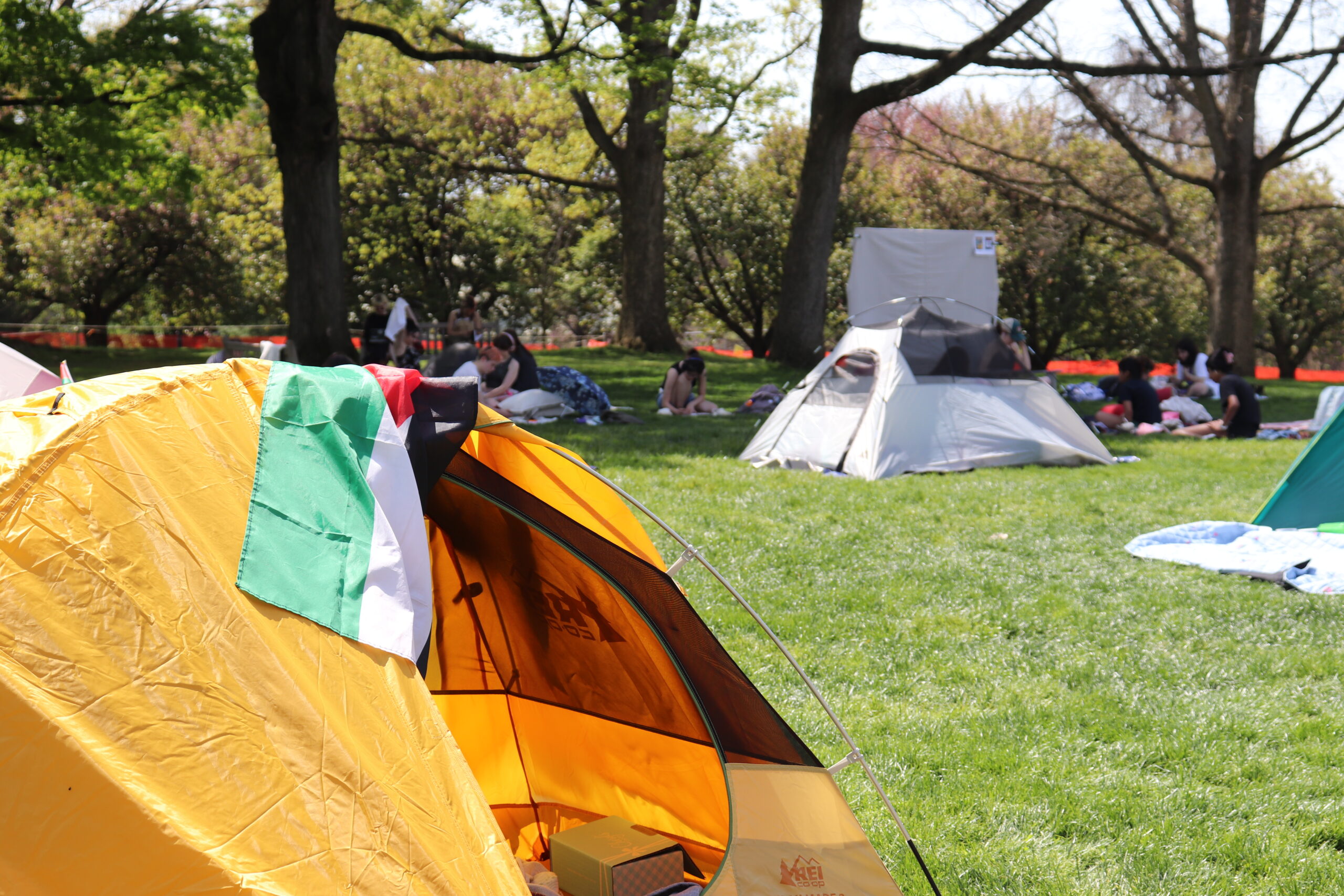BRYN MAWR COLLEGE — On Tuesday, Bryn Mawr College faculty received a series of emails from Provost Timothy Harte, Chair of Faculty Catherine Conybeare, and College President Kimberly Cassidy urging professors not to teach classes at the encampment on Merion Green, which organizers have asked be referred to as “The People’s College for the Liberation of Palestine”. The Bi-Co News was notified of these emails after they were leaked to protest organizers.
Since Monday, protests participants have been inviting professors to teach final classes at the encampment following suggestions from organizers.
“We were hoping that this space could also be a place of learning and that our studies don’t have to be on halt, they can be in combination with what we’re doing here,” explained one encampment organizer. “A lot of classes can be taken into the context of being in solidarity with Palestine. We wanted to offer our professors the opportunity to support us and support our students who are here.”
In response, the Provost Office has insisted that professors abstain from teaching at the protest. On April 30, in an email to the faculty listerv, Provost Timothy Harte and Chair of Faculty Catherine Conybeare wrote: “Regular classes must not be taught in the encampment. Some students have reported that the request to attend these classes puts them in an untenable situation. Classes must be conducted only in spaces that do not risk foreclosing debate or excluding any enrolled student.”
They went on to clarify that professors were permitted to “organize teach-ins or other informal gatherings in the encampment space or in conjunction with the protests.”

Faculty response to these emails has been varied.
Professor Paul Joseph López Oro, Director of the Africana Studies Department opined: “This is the antithesis of academic freedom. Like, huh? Are you asking me to not have the autonomy and freedom intellectually to hold my class anywhere I desire? That’s odd to me. I’m incredibly proud that I listened to my students who requested me to teach my class in the encampment. I’m really proud of the students who decided, I’m really also proud of the students who decided not to participate.”
He followed up his statement adding: “It felt disciplinary. You don’t have to add ‘disciplinary’ in the letter [for that to be the case]. I wish [the letter] had intellectual nuance so we could all have a collective conversation, rather than just shutting it down. It felt like it just got shut down and there was no conversation.”
Not all faculty were in agreement, however. Chair of the Philosophy Department Professor Macalester Bell spoke to her thinking around hosting class within the “People’s College”:
“I trust my faculty colleagues to make the right pedagogical decisions for their specific classes. I would expect our College Administration to protect students’ rights to free expression and protest and my faculty colleagues’ academic freedom. Faculty should have complete freedom to conduct teach-ins within the encampment on their areas of expertise. From what I understand, entering The People’s College for the Liberation of Palestine is to publicly signal one’s solidarity with a political cause that not everyone supports. No matter what my own personal views are on the matter, it is important to me to serve as a professor for all my students, irrespective of their political commitments. So out of respect for students, I would not require my students to enter a space when doing so signals solidarity with a cause they may not endorse. “
The Provost Office had no further comment at this time.
An update to this post was added May 2 to include Professor Bell’s full statement for clarity and context.

1 comment
I agree with Professor Bell completely